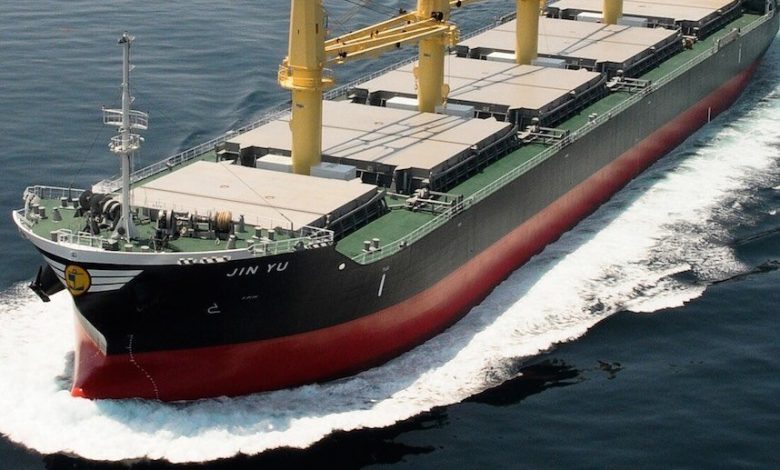Jinhui Shipping holds restructuring talks with lenders

Hong Kong- and Oslo-listed dry bulk operator Jinhui Shipping and Transport has given a remarkably frank assessment of the markets in its latest quarterly report in which it has set out its goal to be one of the survivors of the downturn. It also revealed plans to restructure its debts.
Jinhui described the first quarter as “an unprecedented depressed period” during which it slumped to an $18.48m loss.
The company sold a 2000-built supramax for $2.9m in late March. It still has 35 owned ships on its books.
Jinhui revealed it has initiated restructuring arrangement discussions with its lenders. “Such discussions are currently ongoing and at an advanced stage,” the company stated. A restructuring announcement will be made in June.
“We believe the current tough market cannot be sustainable in the long term, but the journey to recovery and equilibrium will be tough and not without casualties. Based on our observation of the dry bulk market, more shipyards are expected to run into financial distress, owners are doing their utmost to delay and cancel newbuilding orders, and financiers are avoiding new exposure against such backdrop. Some participants will cease to operate in this industry, leaving those ship owners with the experience, expertise, long term commitment together with support from trusted partners operating in the market,” Jinhui said in its quarterly report.
“The difficulties faced by suppliers, buyers and financiers are all pointing towards a much reduced number of newbuildings in 2016 and beyond. The excess newbuilding orders driven by irrational expectations of financial return by parties with limited operating experience, backed by access to cheap funding in the capital market, and fee driven intermediary institutions has backfired. Despite the slight recovery in freight rates in recent weeks, the prevailing trading environment remains to be tough. Events such as delays, conversions of bulk newbuilding orders to other vessel types, cancellations, and shipyard defaults are leading to much fewer actual deliveries than previously scheduled. Many ship owners are running out of liquidity and financiers are certainly avoiding new additional exposure to the sector,” the company added.
Jinhui said it would continue to refrain from using freight, bunker, currencies or interest rate derivatives to minimize any unnecessary business risks.
“Our objective,” Jinhui concluded, “is to be one of the survivors out of the current crisis and be a long term preferred vessel provider in the dry bulk shipping market.”
